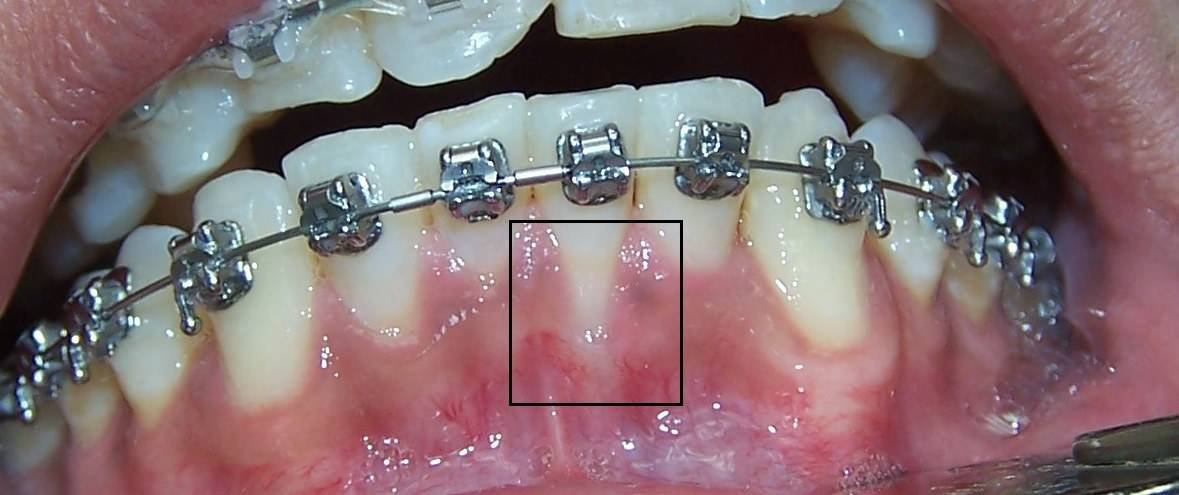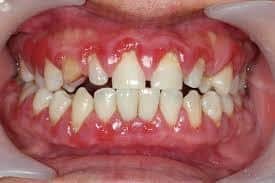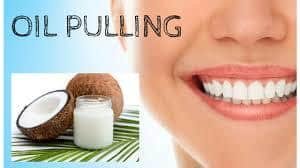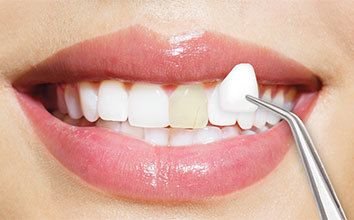A lot of individuals have turned to dental braces to help them align and straighten their teeth.
Braces help with proper positioning of the teeth with regards to the bite as well as fixing gaps on the teeth to help improve their appearance and make your overall dental health overwhelmingly positive!
Using braces is mainly a positive experience however there have been issues that arise from it and one of them are receding gums.
If you have receding gums from braces, this article is for you!
We will do our best to provide you information on how braces cause receding gums and what are the treatment and natural remedies that help alleviate it.
Although not everyone experiences this problem it is definitely something to look into, especially if you are planning to have braces soon!

What Is Gum Recession?
Gum Recession occurs when the gum tissues on your teeth wear away and get pushed back.
The bottom part of the teeth (root) is exposed during this process. The root of the tooth is usually covered and protected by gum tissue.
Because of receding gums the affected tooth looks longer than it actually is and you will experience increased sensitivity to hot and cold foods.
The gaps in the gum line will also increase bacterial build up and there is a possibility of gum disease developing.
Receding gums are not noticeable during the early stages but if left untreated, the surrounding tissue and bone of the affected part can be damaged, resulting in tooth and bone loss in the future!
What Are The Signs And Symptoms Of Receding Gums?
How do you know if you have receding gums?
- The most common sign is sensitive teeth
- The affected tooth looks longer
- There is a darker appearance along the gums.
If not treated properly, it could progress into advanced gum disease (periodontal disease).
Here are some other signs you need to be looking out for:
- Bleeding gums while brushing the teeth
- Swollen and tender gums
- Loose tooth or shifting of position.
- Presence of metallic taste on the mouth
- Halitosis or bad breath

How Do Braces Cause Receding Gums?
When an individual has braces the mouth feels sore because the teeth are moving from their position and pushed into the correct position.
Through this process, the compression force that causes the teeth to move can also cause stress on the surrounding bone and gum tissues therefore causing receding gums.
Surgical Treatment For Receding Gums
1. Gum grafting – The surgeon will take gum tissue from the mouth and place it on the receding gums. If done successfully the tooth and bone of the affected part will be protected from any type of damage.
2. Bonding – This procedure includes gum resin which is placed surgically on the roots of the exposed teeth. It helps reduce the appearance of receding gums and protects the roots of the teeth.
3. Flap surgery – The surgeon will make a small incision on the receding gums which will enable him/her to remove tartar on the affected parts. This procedure helps prevent tooth and bone loss in the future.
What To Do With Receding Gums?
Receding gums can cause little spaces in areas where they meet the teeth and these spaces are conducive to bacterial growth. They love these spaces and can cause all sorts of damage.
We have discussed some ways to treat receding receding gums, such as tissue grafting surgery which can be painful and involve scalpel and stitches.
There is also an incision free procedure which is called Pinhole Gum Rejuvenation.
It is just as effective as oral surgery but less painful and invasive, but more importantly it has an easier recovery process.
Treating Receding Gums Naturally?
We are not sure whether natural remedies will help reverse receding gums but it doesn’t hurt to try right?
 1. Oil Pulling – A study was done in 2009 where oil pulling results showed there was a reduction of plaque in individuals who had gingivitis.
1. Oil Pulling – A study was done in 2009 where oil pulling results showed there was a reduction of plaque in individuals who had gingivitis.
Oil pulling is done by swishing 1 tbsp of coconut oil in your mouth for 20 minutes. Rinse your mouth with warm water or saline water and brush your teeth afterwards.
Another research paper showed coconut oil prevented Strep bacteria from destroying the enamel of the teeth.
2. Eucalyptus oil – A study done in 2008 showed that using eucalyptus oil was an effective antibacterial that helped treat receding gums and also encouraged the growth of new gum tissue.
3. Salt Water – Salt mixed with water is an effective anti bacterial which soothes gum inflammation. Combine 1 tsp of salt and 1 cup of warm water and rinse your mouth thoroughly for approximately 30 seconds then spit out. You can repeat this process 2 to 3 times a day.
4. Turmeric gel – Turmeric contains curcumin which is known for its antioxidant and anti-inflammatory properties. It helps prevent plaque build-up and gingivitis which are correlated with gum recession.
5. Green tea – Green tea has antioxidants and helps promote oral health and it helps fight off diseases. Aim to drink two cups of green tea per day for overall health benefits.
6. Aloe Vera – Effective in improving oral health and is known to reduce inflamed gums.
8. Thyme Essential Oil – According to the 2013 article of the European Journal of Dentistry, Thyme essential oil is effective in reducing the growth of bacteria in the oral cavity.
9. Tea Tree Oil – By using tea tree oil regularly, you prevent the growth of pathogenic microorganisms in the mouth.
Does This Mean I Should Avoid Braces?
Before an individual is advised by their dentist to have braces or not, it’s important for them to undergo a thorough dental exam and family history check.
If there is a family history of gum disease, braces may worsen the condition and it is not advisable to go through with it.
But we know crooked teeth and misalignment can bring other problems. Difficulty cleaning the teeth and possible problems with chewing properly.
Braces have been used to straighten teeth for a long time now but there are other options that a person should consider.
I have braces now please help me! I do not want my gums to recede – Is it too late for my gums?
Not everyone who has braces are going to get receding gums. There is a possibility that oral hygiene is the primary cause.
Keep your gums healthy while wearing braces. Clean them properly and if you can, go for dental cleanings to help prevent gum disease.
Any Alternatives to Braces?
 Here are some things you can consider as an alternative:
Here are some things you can consider as an alternative:
- Invisalign – A popular alternative to braces for adults and one of the well-known aligners that dentists recommend to their patients. It is used to correct a mild case of crooked teeth, misaligned bite and malocclusion.
You will be required to wear the aligner for 20 hours per day for two straight weeks. Individuals who have gaps on their teeth are recommended to use clear aligners because it only needs minimal force to properly correct it.
- Retainers – Used to maintain the teeth after treatment with braces. If an individual needs a minimal correction for their teeth the Essir retainer can be used.
It helps with the small amount of tooth movement. Aside from being non-invasive, the retainers are cheaper and easier to wear than braces.
- Veneers or caps are used by a lot of celebrities. This alternative is recommended for patients who have fractured teeth, gaps and discoloration, poor shape and contours.
The process involves the dentist removing a small layer of enamel and applying the veneers on the teeth using resin. There are also a no-prep veneers that are used without removing a thin layer of enamel.
Receding gums can occur even when there is proper dental care being carried out. Some individuals are more prone to it especially if it’s in the family history.
Receding gums from braces can be prevented if proper dental exam and thorough history check is done for each patient.
Proper oral care is important to prevent gum disease, which can often times lead to receding gums. You should consult your dentist to see what possible solutions there are to fix this problem.
